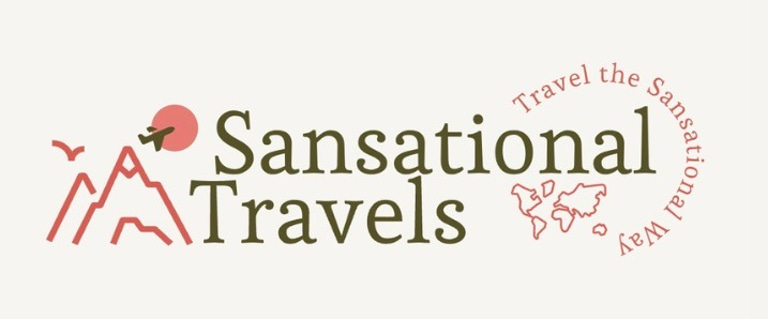Travel’s role in social justice: a path to empowerment and equity
Travel can be a powerful force for good. Learn how to make your journeys empower communities, protect the planet, and foster social justice. Ready to travel with purpose?
DISCOVER YOURSELF & THE WORLD
11/29/20243 min read


Often, travel is romanticized as a way to explore the world, discover oneself and indulge in life’s finer pleasures. But beyond its personal impact, travel has the potential to be a powerful force for social justice. When approached responsibly, it can uplift marginalized communities, shed light on global inequalities and foster a deeper understanding of the world’s interconnected struggles. However, the same act of travel can also perpetuate exploitation and cultural erasure if we aren’t mindful of its impact. Here’s how travel intersects with social justice and how we, as travelers, can be a part of a positive movement.
1. Uplifting local economies
One of travel’s most direct contributions is its ability to inject capital into local economies. Tourism generates millions of jobs, particularly in developing countries, offering livelihood opportunities to communities that might otherwise have limited access to resources.
The issue lies in the inequal distribution of tourism revenue. In many popular destinations, a significant portion of profits ends up in the hands of multinational corporations, leaving local businesses at a disadvantage. All-inclusive resorts and global hotel chains often overshadow small-scale vendors, artisans and local service providers, making it difficult for them to thrive.
To counter this, responsible travelers can prioritize supporting locally owned accommodations, eateries and tours. Opting for homestays, dining at family-run restaurants and purchasing handcrafted goods directly from local artisans not only enhances your travel experience but also helps sustain the local economy. These choices allow communities to preserve their unique heritage while reaping the economic benefits of tourism.
2. Shedding light on inequalities
Travel has a unique ability to expose travelers to the harsh realities of global inequality. Seeing how communities struggle with inadequate infrastructure, healthcare or education can be a wake-up call for privileged visitors.
While it’s important to understand systemic challenges, some forms of “poverty tourism”—such as slum tours—risk exploiting vulnerable communities for voyeuristic experiences. These tours often fail to address structural issues and provide little tangible benefit to the residents.
Instead of passive observation, engage in meaningful ways. Volunteer with organizations that prioritize ethical practices, educate yourself about the systemic causes of poverty and use your platform to amplify local voices. Responsible travelers can act as allies, raising awareness about inequities without objectifying communities.
3. Empowering through education
Travel opens the door to cross-cultural exchanges that can break down stereotypes and foster mutual respect. By engaging with communities on their own terms, travelers can become advocates for cultural preservation and social progress.
Tourists sometimes unintentionally exploit or misrepresent cultural traditions, diminishing their significance or reducing them to shallow attractions. To avoid this, travelers should focus on genuine engagement with local culture by understanding its history, challenges and achievements. Instead of participating in staged rituals or purchasing mass-produced cultural items, seek out authentic experiences like attending a local workshop or festival. Take the opportunity to learn and ask how you can support the preservation and respect of these traditions, ensuring your visit contributes positively to the community.
4. Environmental justice is social justice
The climate crisis disproportionately affects developing nations, even though they contribute the least to global emissions. Tourism can exacerbate this imbalance, particularly through activities like over-tourism, pollution and resource exploitation.
Tourism often puts significant strain on fragile ecosystems, from the carbon emissions of flights to the destruction of natural habitats for resorts. These environmental pressures frequently leave local communities to deal with the long-term consequences. To mitigate this, travelers can adopt eco-friendly practices by using public transportation, choosing destinations that prioritize sustainable tourism and reducing their carbon footprint. Supporting green initiatives not only helps protect the environment but also ensures the preservation of livelihoods for future generations in vulnerable regions.
5. Travel as a catalyst for global citizenship
Ultimately, travel has the power to create global citizens – individuals who see themselves as part of a shared humanity. It encourages empathy, understanding and solidarity, laying the groundwork for meaningful social change.
Travel without conscious effort can unintentionally reinforce divisions and contribute to exploitation or ignorance. To avoid this, it’s important to reflect on your actions: are they truly benefiting the community you’re visiting? Are they perpetuating stereotypes or inequalities? Approach your travels as an opportunity to listen, learn and take meaningful actions—whether by supporting fair-trade businesses, advocating for policies that uphold workers’ rights or sharing the stories of the people you encounter along the way.
Conclusion: transforming wanderlust into justice
Travel isn’t just a leisure activity—it’s a privilege that comes with responsibility. By embracing socially conscious practices, we can transform tourism into a tool for empowerment rather than exploitation. Responsible travel isn’t just about seeing the world; it’s about making the world a better, fairer place for all.
When we travel with intention, we don’t just collect passport stamps—we contribute to a movement of equity, compassion, and justice that transcends borders. Let’s choose to wander with purpose.
Sansational Travels
Contact
sansationaltravels@hotmail.com
+31617701874
© 2024. All rights reserved.
"Travel the Sansational Way"
Social media
Follow us on our social media
Website pages
Questions and trip planning
Travels
Subscribe to our blog
